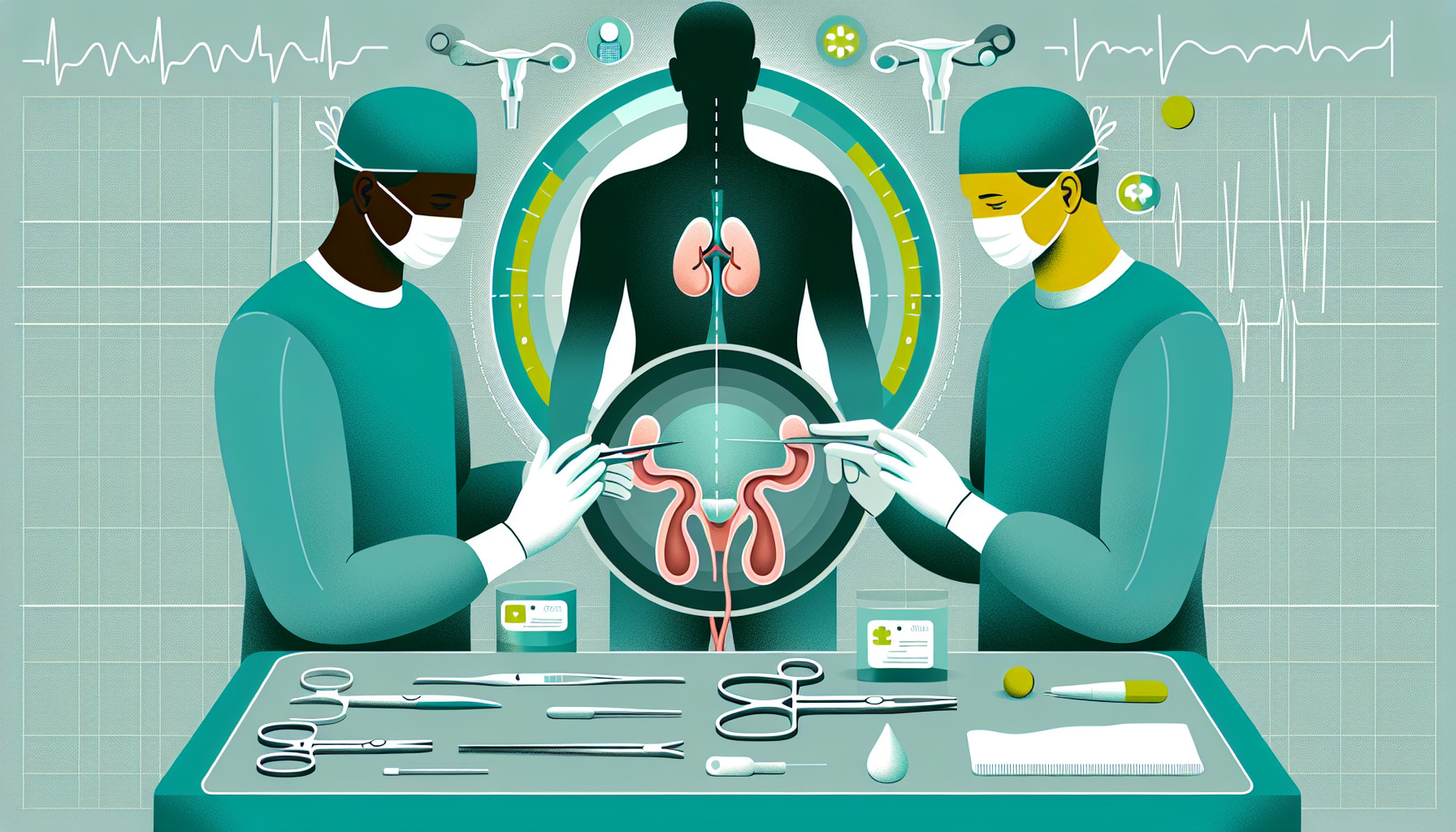Our Summary
This research paper is a review of recent studies on the use of enhanced recovery protocols after a specific type of surgery called radical cystectomy, mostly used to treat bladder cancer. The enhanced recovery protocol is a combination of various measures taken before, during, and after surgery to improve patient recovery. Some researchers have started to use this approach and are seeing positive results, including shorter hospital stays and fewer complications after surgery. However, there’s still work to do in terms of standardizing these protocols and implementing them universally. But, each year advancements are being made that bring us closer to best practice.
FAQs
- What is the purpose of the enhanced recovery protocol after radical cystectomy?
- What positive results have been observed from using the enhanced recovery protocol after radical cystectomy?
- What are the current challenges in implementing the enhanced recovery protocol universally after radical cystectomy?
Doctor’s Tip
A helpful tip a doctor might tell a patient about cystectomy is to follow the enhanced recovery protocol recommended by their healthcare team. This may include lifestyle changes, dietary guidelines, and physical therapy to help speed up recovery and reduce the risk of complications. It’s important to communicate openly with your healthcare provider and follow their advice to ensure the best possible outcome after surgery.
Suitable For
Patients who are typically recommended for cystectomy include those with muscle-invasive bladder cancer, recurrent non-muscle invasive bladder cancer that has failed other treatments, or those with other bladder conditions such as interstitial cystitis or neurogenic bladder. Additionally, patients who have a high risk of developing bladder cancer due to factors such as smoking, exposure to certain chemicals, or a family history of bladder cancer may also be recommended for cystectomy as a preventative measure. Overall, the decision to recommend cystectomy is based on the individual patient’s specific medical history, cancer stage, overall health, and treatment goals.
Timeline
Before cystectomy:
- Patients undergo various preoperative tests and evaluations to assess their overall health and suitability for surgery.
- Patients may be advised to stop certain medications or make lifestyle changes to prepare for the procedure.
- Patients will meet with their surgical team to discuss the procedure, potential risks, and expected outcomes.
- Patients may undergo a preoperative bowel preparation to reduce the risk of infection during surgery.
After cystectomy:
- Patients will be closely monitored in the recovery room immediately after surgery for any complications.
- Patients will gradually start to resume normal activities, under the guidance of their healthcare team.
- Patients may receive pain management medication to help with postoperative discomfort.
- Patients will undergo regular follow-up appointments to monitor their recovery and address any concerns.
- Patients may be referred to physical therapy or other support services to aid in their recovery and adjustment to life after cystectomy.
What to Ask Your Doctor
Some questions a patient should ask their doctor about cystectomy may include:
- What are the risks and benefits of undergoing a cystectomy for my specific condition?
- What alternative treatment options are available for me besides cystectomy?
- How experienced are you in performing cystectomies, and what is your success rate?
- What is involved in the recovery process after a cystectomy, and how long can I expect it to take?
- Are there any specific dietary or lifestyle changes I should make before or after the surgery?
- What are the potential complications or side effects associated with cystectomy, and how are they managed?
- Will I need any additional treatments, such as chemotherapy or radiation therapy, after the surgery?
- How frequently will I need follow-up appointments or monitoring after the surgery?
- Can you provide me with information on support resources or organizations for patients undergoing cystectomy?
- What is your approach to pain management before, during, and after the surgery?
Reference
Authors: Ghodoussipour S, Djaladat H. Journal: Curr Urol Rep. 2018 Oct 18;19(12):98. doi: 10.1007/s11934-018-0855-3. PMID: 30338450
